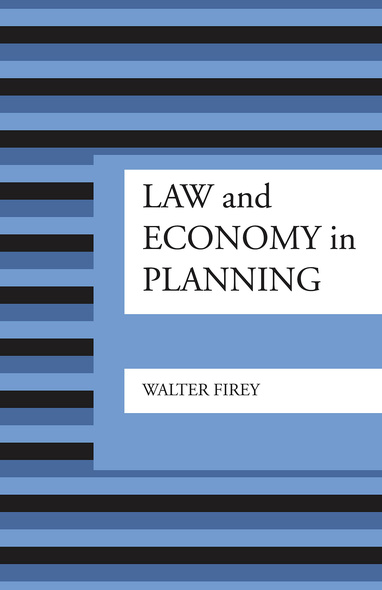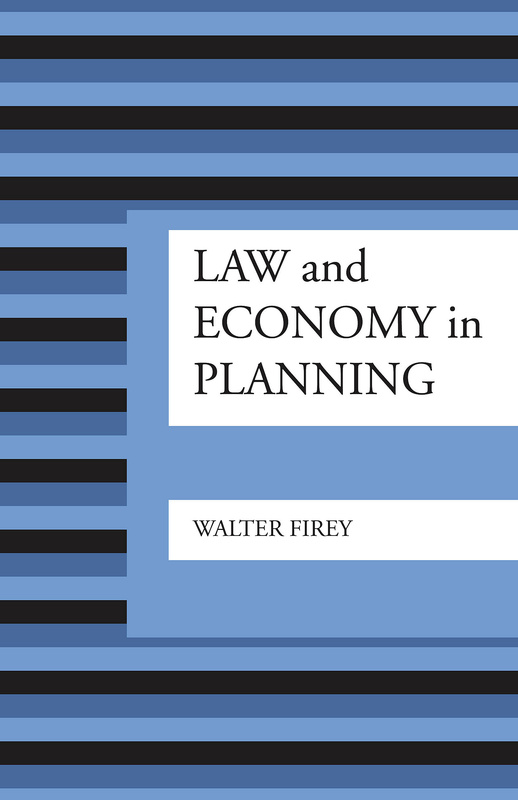From the beginnings of human association, social planning has been an accepted method for effecting improvements in community, regional, and national life. In Law and Economy in Planning, Walter Firey has made a start in the development of an intellectual framework that will give meaning to the craft of planning and establish a relationship between practice and first principles.
In this study he investigates basic elements of this framework existing in two normative orders: the state, in which a collectivity has the obligation to enforce obedience; and the market, in which the individual has the right to be rational. These normative orders, whose laws are formulated in the disciplines of jurisprudence and economics, have a common concern with the utilization of scarce means to given ends.
These orders, the state and the market, are formulated by the art of planning and have a common relationship to the natural order, which cannot be planned, but only predicted, and which is explained by the science of planning. To bridge the gap between the natural order and the normative order is the function of a philosophy of planning, for which an intellectual framework—of necessity interdisciplinary—is essential.
This study is the culmination of several years of research in the fields of planning and social theory. During the course of this research Firey came to appreciate more and more keenly the need for an interdisciplinary formulation of the planning process and, with this, the need for a philosophical foundation for interdisciplinary work. A year’s fellowship at the Center for Advanced Study in the Behavioral Sciences at Stanford gave him the opportunity to develop his ideas bearing on this subject and to put them in writing.
- Preface
- I. The Pure Theory of Planning
- Planning as a Normative Phenomenon
- The Epistemological Status of Planning
- II. The Legal Component of Planning
- The Pure Theory of Law
- The Basic Legal Norm
- Legal Transactions and the Limits to Authority
- III. The Economic Component of Planning
- The Theory of General Economic Equilibrium
- The Basic Economic Norm
- The Contract and the Limits to Rationality
- IV. Efficacy and Value in Plans
- The Concept of Value
- The Mediate Norm
- The Dual Source of the Validity of Plan Norms
- V. The Structure of Value in Plans
- Possible Combinations of Value in Planning
- Types of Planning
- The Sanctions of Plans
- The Limits of Effective Planning
- VI. Conformity to Plans
- Conformity as a Correspondence between Plan and Reality
- Characteristics of Conforming and Nonconforming Behavior
- The Complementarity of Obedience Rationality
- The Variable Ratio between Want Gratification and Want Deprivation
- The Behavioral Significance of Sanctions
- Obedience and Rationality in Different Types of Plans
- Stability Plans
- Developmental and Allocative Plans
- Individual Developmental Plans
- Governmental Developmental Plans
- Individual Allocative Plans
- Governmental Allocative Plans
- Anomalous Activities and the Resistance to Plans
- Conformity as a Correspondence between Plan and Reality
- VII. The Reality of Planning
- Index





